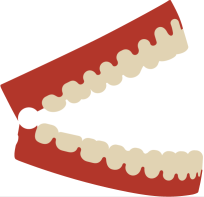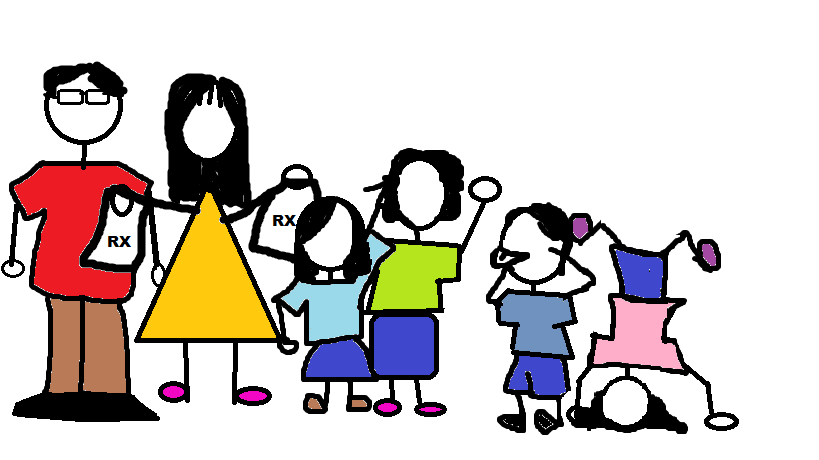I have a friend whose entire family is medicated. Georgia tells me that whenever they travel they require a small carry-on just for the pharmaceuticals. Two parents (now divorced), four kids, all on assorted forms of prescription stimulants in addition to a hodgepodge of other pills that the doctor ordered.
Not long ago, I would have balked at this scenario. Can it really be that a family of six otherwise healthy people need to tote around a small drug store in order to get through the day? For Georgia, she jokes, it’s a ‘no brainer.’
“If I didn’t take my medication in the morning, nothing would happen in the house. Nothing. I would sit around for hours at a time staring into space. I’d have a coffee and a smoke and check my whatsapp and my day would be done.”
Georgia’s got it bad.
On the other hand, freshly single, she gets four kids plus lunches, homework and all the outerwear that the day requires out of the house and to assorted carpools on time every single morning– we’re talking four separate carpools, at least one of which she is the driver for. That is no small accomplishment.
I happen to know that in her pre-mom life, Georgia was something of a delinquent, or at least a very nice and kind but brash and rule-resistant, boundary-testing individual if not an actual criminal. Today she is a self-supporting parent of four awesome, if unruly, kids.
For Georgia, a person I respect and admire, medication really does make all the difference. As far as she is concerned, her kids need to be medicated so that they don’t have to go through the hardships that she went through as a child. She hopes that they will be able to realize their potentials with all of the usual struggles that kids go through, but with a minimum of impediment from Attention Deficit and Hyperactivity Disorder. In the case of one of her kids, it’s the only way she was allowed to remain in the classroom.
I may or may not have made the same decisions as Georgia, were I in her shoes. However, I accept her reasoning.
Also, I look at Georgia and see how far she has come, and how she is able to carry her family thanks to her diligence and her commitment to mental health.
I find myself asking if there are measures I can take – measures which I have not yet tried– to curb the oppression that ADD has on my professional fulfillment.
Back when I was an environmental educator, we would sometimes have field days when we’d have do dispense lunchtime medication to kids who required it. At the end of one such week of programming, when the bus-full of kids had already been returned to their parents in their hometown, I reached into my pocket to find a small envelope containing one dose of Ritalin that I’d neglected to hand out.
Once we discovered the error, I was supposed to have disposed of the pill but instead I hung on to it for reasons I didn’t quite understand. In a very uncharacteristic move, I took it one afternoon a few months later when I was back at school and trying to get through an assignment.
Partly, I wanted a boost to get me to the end of the project. Partly, I wanted to see what all the hype was about. To hear it described, Ritalin was some sort of a wonder drug that won you good grades and job promotions.
As it happened, neither of those outcomes materialized, as far as I could tell. I didn’t feel like the tablet had had any effect on me at all; neither positive nor negative.
Had the pill created some drastic or even noticeable change in focus, perhaps it would have opened me up to the possibility of medication as a realistic option for me at that time. But since I did not register any response, probably due to a dosage meant for a fifth-grader, my position as a staunch anti-drug hippie (the rarest of specimens) was reinforced once again.
Fast forward about fifteen years. If your read my post from a couple of weeks ago, you’d know how I finally came to a decision about medication. I have a lot more life experience today than I did in my twenties, and a whole different perspective on what’s important.
In fact, I remember consulting with my dentist about a year ago with regards to a particular tooth that I’ve had many problems with over the years. To cap or not to cap was the question, and if so, then when. The cost was high but the need was not dire. Turning the idea over in my mind, I drifted into an investment mindframe, and tried to assess the value of this procedure over time.
“How much is this tooth worth considering the number of years I could potentially get out of it? Will I be using this tooth for another 40 years? 50? 60? Maybe more… ”
I hadn’t intended to be morbid and my mind snapped back to the present when I realized how shocking my thoughts had been. The idea of my ever-diminishing potential was now rooted in my mind however. I stopped thinking in terms of dental work but continued on the theme of age. It’s hard to project how many productive years I have left in my life, but I can give you a fair estimate of how many I’ve wasted. How much more time am I going to waste trying to figure out how to get where I want to go?
As the Indigo Girls so aptly put it, ‘How long ’till my soul gets it right?’
Georgia made a choice not to blunder and not to wait and see. Maybe she doesn’t know where medication will take her, but she does know where she and her family would be without it.
As for me, I know that I haven’t been able to climb to the heights I’d always thought I’d reach. Maybe medication is the final tool in my toolkit. Can it be what I’ve been missing all these years?
